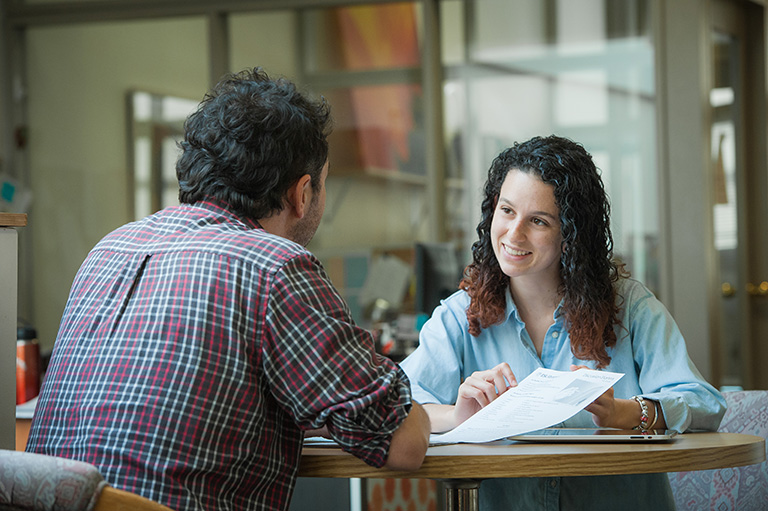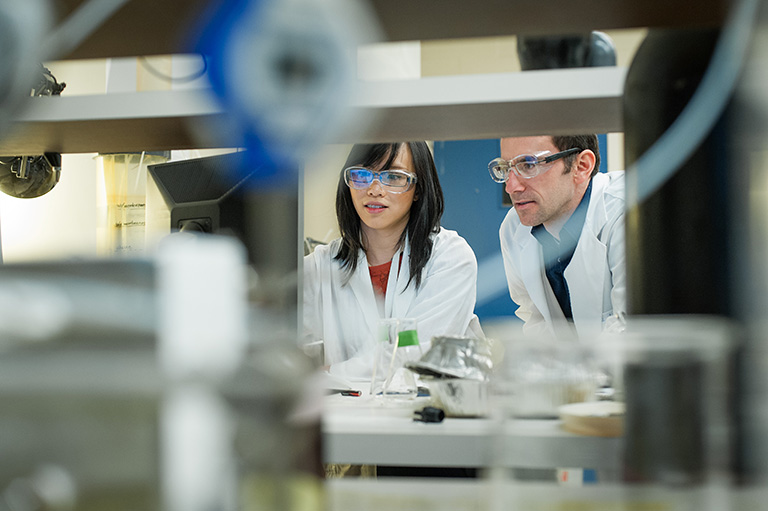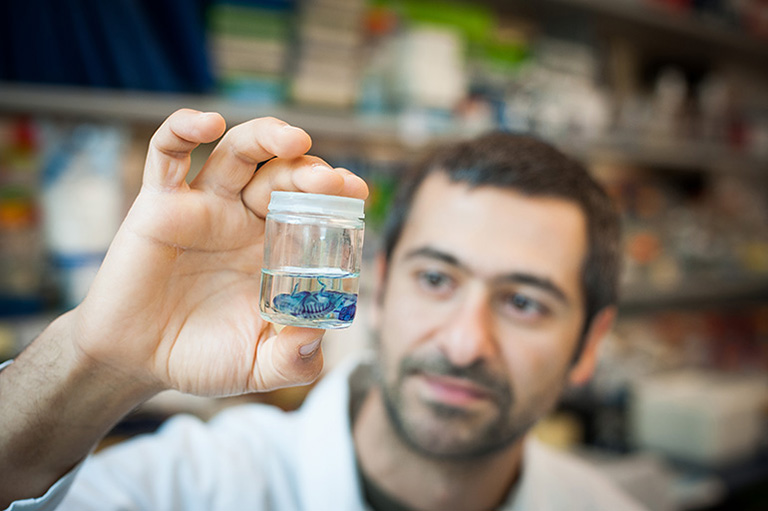Class Dispersed: Experiential Learning and the Community
“For the things we have to learn before we can do them, we learn by doing them.” Experiential learning – what was true back in Aristotle’s time (circa 350 BCE) is especially true today and especially so at UBC.
By the time they graduate and with the help of the Centre for Student Involvement and Careers (CSIC) and UBC’s six co-op programs, about 75 percent of UBC undergraduates have worked outside of the classroom not only to help develop their future employability skills and confidence, but also to have some fun along the way.
Just ask Alex Chen, the articulate and all round Wesbrook Scholar, 2013 Canadian Co-op Student of the Year and participant in a Go Global exchange to Sciences Po University in Paris.
Chen says the “highlights” of his UBC degree were heading to France as an exchange student and working with DFATD, also known as Foreign Affairs, Trade and Development Canada, as a co-op student:
“Participating in the exchange allowed me to improve my language skills, experience university life in another culture and solidify my values and beliefs while being a ‘foreigner’ in a host nation.
“Working at DFATD gave me the opportunity to discover a career that I love, gain the competencies that would qualify me for such a career and truly see the value in my education.
“More specifically, I was able to understand how classroom knowledge can be applied in the workplace, as well as the ‘gaps’ in my education. Knowing these gaps later helped me decide which courses I needed to take in my last year of university.”
Whether on campus or not, the ‘hands on’ experiences range from community services, co-ops, internships, field research/practicum and other experiential work.
For example, fourth-year Science student and future pediatrician Henry Lai who has been involved in the Work Learn program, specifically in developing and facilitating after-school workshops for children at the Musqueam Community Centre. In his most readable blog, Lai writes:
“Harvesting from our youth garden, dissecting chicken wings and listening to stethoscopes have been some of my favourite activities with the kids there.
“The variety of Work Learn jobs available is enormous and spans all faculties and interests. Plus, the average salary is over $16 per hour, so it’s easier to balance work with everything else you’ve got planned for the summer.
“Entering a new community, demonstrating cultural competency, and of course, learning with youth, are all life experiences that I believe will shape me into a great pediatrician. My experience has really influenced what I want to do. One day I might open my very own clinic at Musqueam. Who knows?
Each year CSIC steadily increases its reach and range, expands its career advising and professional development support to UBC’s questing students. Since 2012, for example, it has doubled its one-to-one advising and workshop sessions.
Once out in the world, it’s often a fond adieu to UBC with most graduates firmly set on their career paths. However, some return to pursue even higher levels of academic credentials but interestingly, more than 60 percent of PhDs in Canada do not go on to establish academic careers.
To help its own, UBC is enhancing its services to help prepare grad students for life within and without the ivy-covered walls.
Pivoting on the long-established (1991) Teaching and Learning Enhancement Fund (TLEF) grant funding and with the full support of UBC leaders, in the last year alone the ‘contact rate’ or the successful ‘reach out’ to UBC grad students increased by 34 percent via seminars, workshops, special events, flexible-learning resources and advising.
All the way, the CSIC and the variety of co-op programs on campus are there to help, bolstered by the enthusiasm and experience of people such as Rosy Lee, now an assistant at the CSIC: “My readiness for graduation has been directly and profoundly impacted by my involvement in the Arts Co-op Program and specifically, by my current co-op position.
“Most notably, the mentorship and personal development that I have received in this position have not only given me the confidence to tackle ‘life after graduation’ but have also helped me better understand myself – what type of career I want, and what type of work I will excel in.
“This personal reflection has been an invaluable part of my growth at UBC.”
Read more about
Student LearningRelated Content

“Most notably, the mentorship and personal development that I have received in this position have not only given me the confidence to tackle ‘life after graduation’ but it has also helped me better understand myself."

Campus
OkanaganCampus
Vancouver